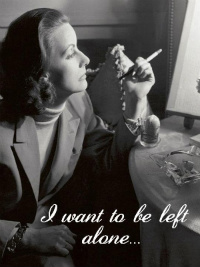“But who am I to rebuke the guilty? The worst part is that I have to forgive them. We must reach such a nothing that we indifferently love or don’t love the criminal who kills us. But I’m not so sure of myself: I have to ask, though I don’t know who can answer, if I really have to love the one who slays me and ask who amongst you slays me. And my life stronger than myself, replies that it wants revenge at all cost and replies that I must struggle like someone drowning, even if I die in the end. If that’s the way it is, so be it” (Lispector 72)
How do I even try to comprehend this novel?
Macabéa, the titular character who is not named until at least halfway into the novel, is strange. Frequently described as dumb, Macabéa is someone who “doesn’t know herself except from living aimlessly” (Lispector 7). If she were to contemplate her existence wondering, “Who am I?’ She would fall flat on her face” (Lispector 7). Within these opening remarks from the narrator, we can infer his self-righteous nature. He cannot fathom the very being of Macabéa, or at least he cannot understand her.
“It’s a fear that those whose sense of self is rooted in knowing often have about those perceived to be unknowing” (Minor)
The entire creation of Macabéa in the narrator’s eyes reminded me of Nadja; Breton also created a woman to redirect his insecurities. Thus, the narrator portrays his own self-isolation onto Macabéa. He claims that he “ha[s] to seek a truth that is beyond [him]” (Lispector 12). It is a desire to understand the girl who exists as nothing. But nothing is something; the very nature of there being nothing implies its very existence.
“All roads are blocked to a philosophy which reduces everything to the word ‘no.’ To ‘no’, there is only one answer, and that is ‘yes.’ Nihilism has no substance. There is no such thing as nothingness, and zero does not exist. Everything is something. Nothing is nothing. Man lives more by affirmation than by bread” (Sorenson, From Victor Hugo’s Les Miserables)
Leaving the academic philosophical lecture aside, the book is a more extensive commentary on humanity; what does it mean to be human? Who am I?
Previously, I touched upon the narrator’s desire to understand Macabéa. This one theme is central to the short novel because everyone around her seems to be trying to make sense of her. We see the explosive attitude of Olímpico, the somewhat helpful Glória, or even the mystical fortune teller. Everyone exists around her to eliminate her individuality or, rather, her lack of it; the narrator describes her as “a dispensable cog” (Lispector 21). But she is nothing of the sort. Macabéa’s very own identity contrasts with society’s. We can see her “possess[ing] a keen ability to see beyond the structures that everyone else lives by” (Berry). She existed “ in [an] impersonal limbo, without reaching the worst or the best.” (Lispector 15). To be frank, she just was.
Macabéa is a being that just exists. She watches the little things, narrowing her view onto a small speck in the entire universe. Living a quaint life can never changed for the girl; “Just as you could be sentenced to death, the fortune teller sentenced her to life” (Lispector 70), and it is when she truly started living that she died.

This novel may be one of the strangest things I’ve ever read. A closer look envelops all these heavy philosophical topics tucked under 80 pages.
Quick quote about Greta Garbo: “There was a reason, beyond the exertions of the Hollywood publicity machine, that a single line she uttered in one movie—“I want to be alone”—became so fused with her image.”
Discussion Question
What truly makes a life ‘meaningful’?
Works Cited
Gerry, Rachel. “Writing the Void: A Review of Clarice Lispector’s “The Hour of the Star” Prism Online, 2021, https://prismmagazine.ca/2021/05/27/writing-the-void-a-review-of-clarice-lispectors-the-hour-of-the-star/
Minor, Abby. “That Full Void’: Clarice Lispector’s The Hour of the Star.” AGNI, 2021 https://agnionline.bu.edu/review/that-full-void-clarice-lispectors-the-hour-of-the-star/
Sorensen, Roy, “Nothingness”, The Stanford Encyclopedia of Philosophy (Spring 2023 Edition), Edward N. Zalta & Uri Nodelman (eds.), https://plato.stanford.edu/archives/spr2023/entries/nothingness/
Talbot, Margaret. “What Was So Special About Greta Garbo?” The New Yorker, 2021 https://www.newyorker.com/magazine/2021/12/13/what-was-so-special-about-greta-garbo

‘What truly makes a life ‘meaningful’?’
You’re going for the easy questions this week? 😉
Hi Gabby!
I think you are asking the easy but difficult questions at the same time. I don’t think that Macabea’s life is as meaningless as many people would consider it to be there. There is a certain level of monotony in her life, she’s a poor girl with a mediocre at best boyfriend and nothing really special about her life. However , this does not make her life meaningless, she is still a person with important feelings and thoughts. So, to answer your question, life itself makes life meaningful regardless of its events, even though we should attempt to use life to its fullest potential.
Thanks, Nadia 🙂